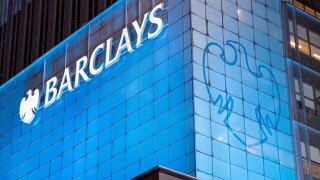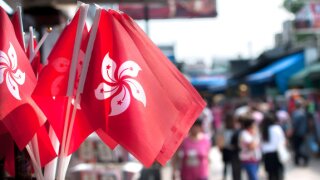News content
-
Africa Finance Corporation (AFC), the Nigeria-based multilateral development bank (MDBs), has emerged at the forefront of regional coronavirus rescue efforts, providing financing for emergency hospitals, medical aid and more. As Africa finds itself at the centre of global calls for emergency financing and debt relief, the AFC’s chief executive, Samaila Zubairu, talks to GlobalCapital about the bank’s response to the crisis, how its own fundraising plans have been affected, and the future of Chinese capital in the region.
-
The European Banking Authority warned this week that lenders could struggle with asset quality problems for years as a result of Covid-19, publishing the findings in its first sensitivity analysis of the EU banking sector.
-
Jingdong Hua has seen his fair share of crises. In Africa when the Rwandan genocide happened, in the Philippines when the Asian tsunami hit, in New York City when the twin towers fell on 9/11, he now finds himself in Washington, DC at one of the key institutions the world is desperately looking to to lead it out of the coronavirus crisis.
-
Barclays has made Paul Leech and Todd Sandoz interim co-heads of global equities, after Fater Belbachir was hired by Citi.
-
Hong Kong’s equity markets took a hit on Friday and sentiment soured among bond investors over news that China is considering enacting the national security law in Hong Kong. Bankers have described the possible impact as everything from a “death knell” to a “flash point” for the special administrative region’s markets.
-
Safety measures to respond to the coronavirus threat are forcing a rethink of office space at financial firms. And in the long-term, banks are set to reconsider their physical footprint and how much work can be carried out remotely, according to managers and experts.
-
France and Germany presented a joint plan for a €500bn grant-based EU recovery fund earlier this week. Eurozone periphery investors reacted with delight, but other member states resisted. Despite the opposition, most believe that Germany’s support of the plan marks a sea change in European politics and offers a chance for Europe to catch up with the Covid-19 spending of other developed economies, writes Lewis McLellan.
-
The new UK insolvency law, introduced into the British parliament on Wednesday, will allow unconsenting creditor classes, including secured creditors, to be crammed down during a restructuring. This could mean bondholders and banks, rather than landlords, take more of the pain in the coming wave of corporate distress. Hotel chain Travelodge is likely to be one of the first major companies to use the new rules.
-
Credit Suisse’s plan to launch a private credit opportunities fund has been undermined by a spying scandal, the departure of Jim Amine, and Covid-19, writes David Rothnie.
-
Nick Darrant, JP Morgan's head of CEEMEA debt capital markets syndicate, is leaving the bank after five years to join Citigroup as co-head of EMEA syndicate.
-
After the coronavirus crisis, new patterns of work and travel are expected to change the nature of financial hubs such as London. However, Michael Mainelli, one of the sheriffs of the City of London, says that the UK capital is well placed to remain an attractive location for business.
-
What is the significance of the agreement between German chancellor Angela Merkel and French President Emmanuel Macron on a European recovery package, funded through EU debt? GlobalCapital discussed it with Shahin Vallée, a senior fellow at the German Council on Foreign Relations (DGAP) and previously an economic adviser to Macron when he was France’s economy minister.












